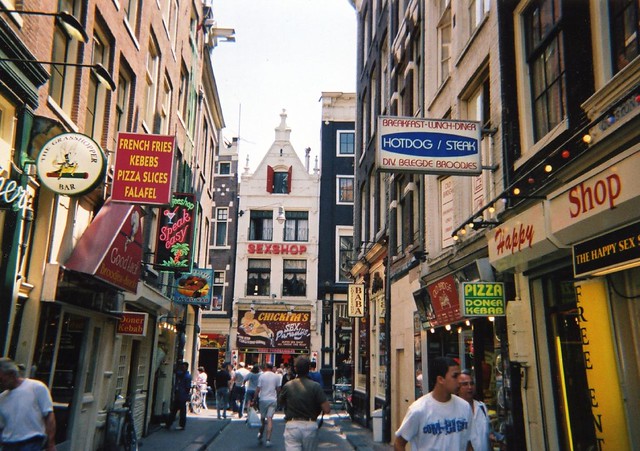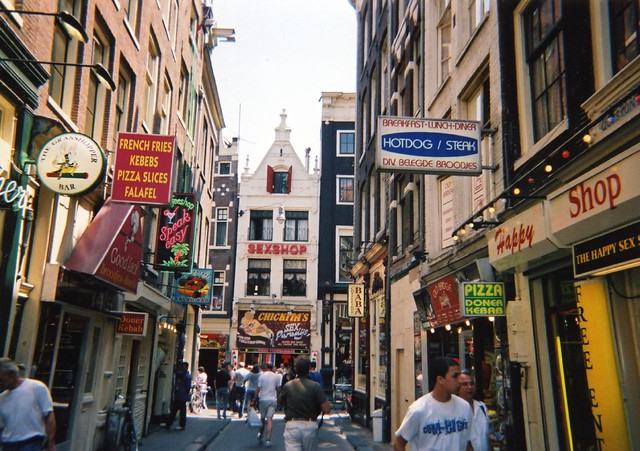
Ben Sutherland
There are many data centers in the capital itself and within a radius of 50 km. 70% of their total number are located throughout the country, which makes one third of all data centers in Europe. At the same time, the authorities claim that the number of data centers in Amsterdam is larger than number in any other major city of the world. Last week, the municipality imposed a temporary moratorium on issuing permits for the construction of data centers in the region at least until the end of 2019.
The Netherlands attract technology companies with low taxes and cheap electricity. Due to this, the country has become one of the largest technological hubs in Europe with 430 fintech companies (data from Holland Fintech). There are data centers of such giants as Microsoft and Alphabet. Microsoft has a regional cloud computing center here, and Google announced in June that it intends to invest another € 1 billion to build a new data center in Agriport, 30 km from Amsterdam.
The influx of technology companies, coupled with the ever-growing tourist flow, has already resulted in the fact that housing in Amsterdam has become inaccessible to the majority of city residents.
According to a Knight Frank survey, Amsterdam is one of the least accessible major cities in the world in terms of housing costs. Over the past five years, property prices here have grown by 64%, while the average income of residents has increased by only 4.4%. The average price of a house/apartment in the capital now amounts to € 450 thousand, while this figure is about € 300 thousand in the country.
Another problem is the increased load on the grid, because data centers require a significant amount of electricity to process large amounts of data.
The Dutch Data Center Association (DDCA) said that the data processing centers of the companies – members of the association provide themselves with 80% of their electricity from renewable sources. However, according to the Amsterdam authorities, this is not enough.
As for the decision to stop issuing permits for the construction of new centers, the DDCA noted that "the infrastructure of data centers attracts international technology companies and brings many jobs." "We are surprised by such a tough decision that was made right now and so unexpectedly," the association said.
Amsterdam can be considered the first city to openly limit the fast-growing data center industry. Other regions, on the contrary, are trying to actively attract players from this market. According to the CBInsights report, by 2025, the total amount of data stored and transferred from server to server will reach 175 zettabytes. And the market itself will grow to $ 228 billion by 2020.
source: bloomberg.com
The Netherlands attract technology companies with low taxes and cheap electricity. Due to this, the country has become one of the largest technological hubs in Europe with 430 fintech companies (data from Holland Fintech). There are data centers of such giants as Microsoft and Alphabet. Microsoft has a regional cloud computing center here, and Google announced in June that it intends to invest another € 1 billion to build a new data center in Agriport, 30 km from Amsterdam.
The influx of technology companies, coupled with the ever-growing tourist flow, has already resulted in the fact that housing in Amsterdam has become inaccessible to the majority of city residents.
According to a Knight Frank survey, Amsterdam is one of the least accessible major cities in the world in terms of housing costs. Over the past five years, property prices here have grown by 64%, while the average income of residents has increased by only 4.4%. The average price of a house/apartment in the capital now amounts to € 450 thousand, while this figure is about € 300 thousand in the country.
Another problem is the increased load on the grid, because data centers require a significant amount of electricity to process large amounts of data.
The Dutch Data Center Association (DDCA) said that the data processing centers of the companies – members of the association provide themselves with 80% of their electricity from renewable sources. However, according to the Amsterdam authorities, this is not enough.
As for the decision to stop issuing permits for the construction of new centers, the DDCA noted that "the infrastructure of data centers attracts international technology companies and brings many jobs." "We are surprised by such a tough decision that was made right now and so unexpectedly," the association said.
Amsterdam can be considered the first city to openly limit the fast-growing data center industry. Other regions, on the contrary, are trying to actively attract players from this market. According to the CBInsights report, by 2025, the total amount of data stored and transferred from server to server will reach 175 zettabytes. And the market itself will grow to $ 228 billion by 2020.
source: bloomberg.com


















